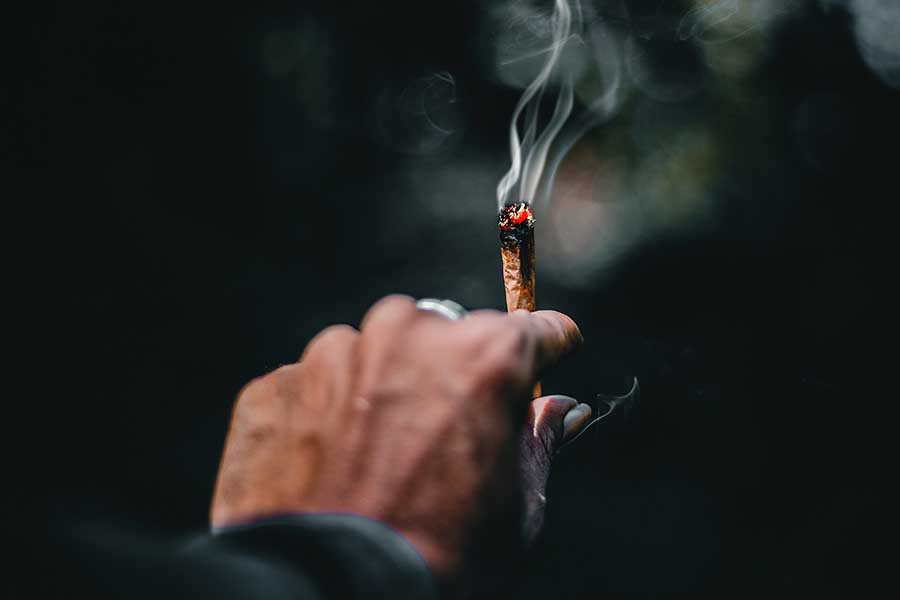The entourage effect and terpenes
As you may know, each cannabis strain has its own fragrant compound because of what we call “terpenes,”and the cannabis plant produces more than 200 of them. But, they’re not all about taste and aroma (read “What are Terpenoid & Terpene Profiles” to learn more). As we stated earlier, plant-derived phytonutrients like flavonoids and terpenes, like cannabinoids, may also bind to our cells and receptors and, therefore, may also interact with our ECS and aid cannabinoids in entering the bloodstream.
Myrcene, for example, is believed to increase porosity across the blood-brain barrier and therefore increase the speed of cannabinoid absorption. Limonene is known for increasing serotonin levels, which can then help cannabis affect our mood, such as when we are feeling depressed or anxious, as stated in a study in 2013. And, a study in 2015 shows that when certain terpenes are consumed together, they can display synergistic anti-tumour properties on cancer cells in a laboratory.
The different ratios and benefits of the entourage effect
Dr. Ethan Russo is a neurologist and pharmacologist renowned for his studies of cannabis compounds and how they affect the body. In 2011, he published a review called “Taming THC: potential cannabis synergy and phytocannabinoid-terpenoid entourage effects,” which focused on phytocannabinoid and terpene interactions that could potentially synergize to benefit the treatment of pain, inflammation, depression, anxiety, addiction, epilepsy, cancer, and fungal and bacterial infections. Some of these potential cannabinoid-terpene synergies include: pinene for poor memory; CBD and caryophyllene for addiction; CBD and limonene for anxiety; and THC and CBN for sedating effects.
If you care to test this theory, a 1:1 ratio of THC to CBD is believed to be the golden to achieve a true entourage effect. Combining THC and CBD in this ratio might be the ultimate way to relax the body. As THC binds to receptors in our central nervous system CBD to receptors in our immune system, they can work together to cause a calming effect. And if you try this, please try this at home.

